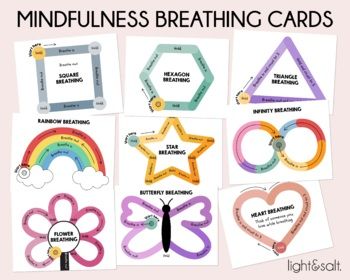Anxiety is a common issue that many people face in their daily lives. From the pressures of work and relationships to the fast-paced nature of technology, it’s easy to feel overwhelmed and stressed out. One effective way to combat anxiety is through mindfulness exercises. By practicing mindfulness, you can bring yourself into the present moment and alleviate feelings of worry and unease. Here are some tried and true mindfulness exercises to help you calm your mind and reduce anxiety:
1. Deep Breathing
One of the simplest and most effective ways to practice mindfulness is through deep breathing exercises. By focusing on your breath, you can bring yourself back to the present moment and calm your nervous system. Try sitting in a comfortable position, closing your eyes, and taking slow, deep breaths. Inhale deeply through your nose, hold for a moment, and exhale slowly through your mouth. Repeat this process several times until you feel more relaxed and centered.
2. Body Scan Meditation
Body scan meditation is another powerful mindfulness exercise that can help alleviate anxiety. Start by lying down or sitting in a comfortable position and close your eyes. Begin to focus on each part of your body, starting from your toes and working your way up to your head. Notice any tension or discomfort in each area and try to release it as you breathe deeply. This exercise can help you become more aware of your body and release any physical tension that may be contributing to your anxiety.
3. Mindful Walking
Walking mindfully is a great way to practice mindfulness and reduce anxiety. Instead of rushing from one place to another, try to focus on each step you take. Feel the ground beneath your feet, notice the movement of your body, and pay attention to your surroundings. Walking mindfully can help you slow down and appreciate the present moment, which can be incredibly grounding and calming.
4. Gratitude Journaling
Keeping a gratitude journal is a wonderful way to practice mindfulness and cultivate a positive mindset. Take a few minutes each day to write down three things you are grateful for. This can be as simple as a sunny day, a delicious meal, or a kind gesture from a friend. By focusing on the good things in your life, you can shift your perspective from fear and worry to gratitude and appreciation.
5. Mindful Eating
Many of us rush through our meals without really paying attention to what we’re eating. Mindful eating is a practice that involves savoring each bite, appreciating the flavors and textures, and paying attention to how the food makes you feel. By eating mindfully, you can reduce anxiety around food and develop a healthier relationship with eating.
6. Loving-Kindness Meditation
Loving-kindness meditation is a practice that involves sending love and compassion to yourself and others. Start by sitting in a comfortable position and focusing on your breath. Then, repeat phrases such as “May I be happy, may I be healthy, may I be safe, may I be at peace.” You can also extend these wishes to loved ones, strangers, and even people you may have conflicts with. This practice can help cultivate feelings of kindness and connection, which can reduce anxiety and increase feelings of well-being.
Overall, practicing mindfulness exercises can be a powerful tool for alleviating anxiety and improving your overall well-being. By incorporating these practices into your daily routine, you can cultivate a sense of calm and presence that can help you navigate life’s challenges with greater ease and resilience.

